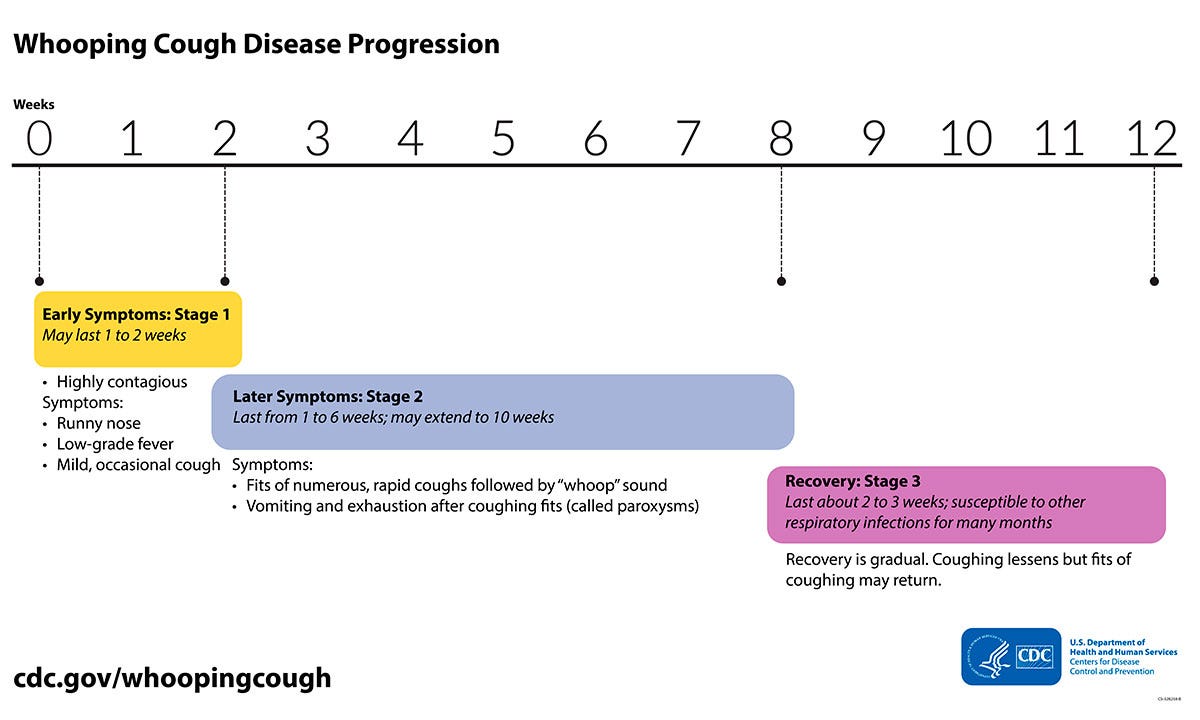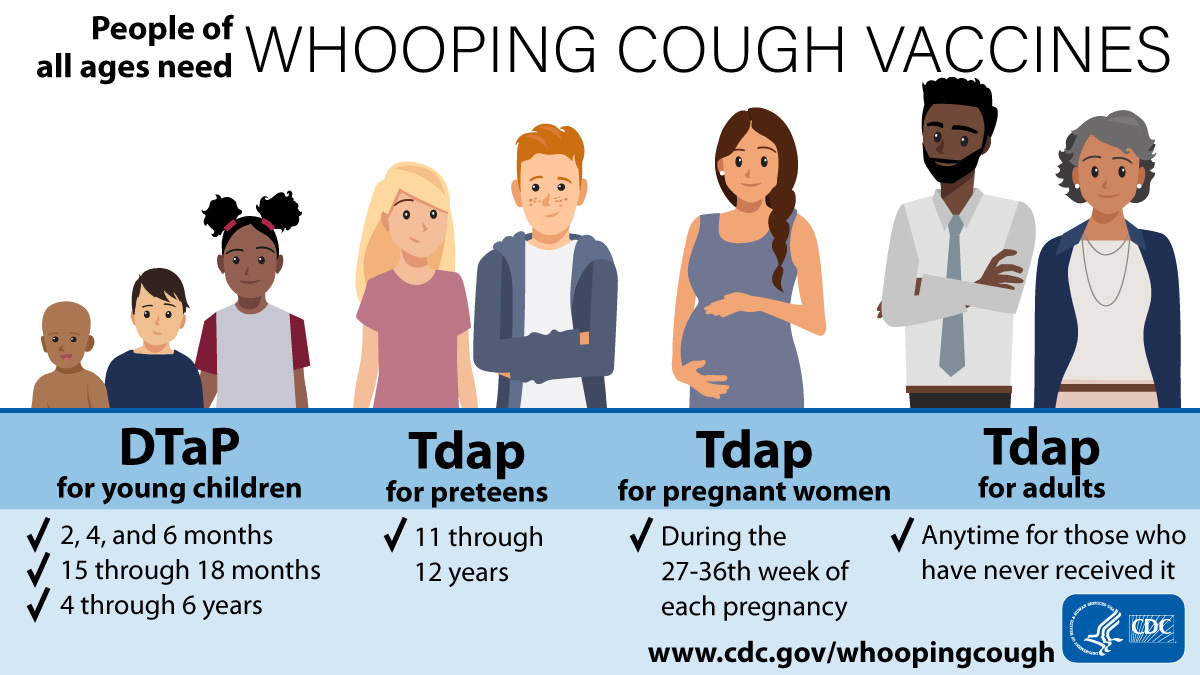Whooping Cough on the Rise
Why you should stay up-to-date with your TdAP (tetanus + pertussis) booster
Pertussis (Whooping Cough) In the News
As the United States continues to experience rising measles cases and declining vaccination rates, it is unsurprising to see a resurgence of other vaccine-preventable diseases. Pertussis, or whooping cough, has been gaining national media attention following reports of pertussis-related deaths in several states including Louisiana, Washington, and South Dakota.
Pertussis is one of the leading causes of vaccine-preventable deaths worldwide. According to a preliminary CDC report, there were approximately 35,435 cases of pertussis in 2024, a stark increase from 7,063 cases in 2023. As of 2025, 7,586 cases have already been reported, more than double the number reported at this same point last year. This trend is particularly alarming given that pertussis typically peaks in late summer and fall, suggesting the U.S. is on track to exceed last year’s total.
During the COVID-19 pandemic, public health measures such as masking, social distancing, and heightened hygiene practices led to a significant drop in pertussis cases. In 2021, only 2,116 cases were reported. While some experts speculate that we may simply be returning to pre-pandemic levels, the recent numbers exceed even those figures. For context, there were 18,617 cases in 2019 and 15,609 in 2018, far fewer than the 2024 total of 35,435.
Sources:
What is Pertussis?
Pertussis, also known as whooping cough, is a highly contagious bacterial respiratory infection. Symptoms typically manifest 7-10 days after infection, presenting with a mild fever, runny nose and cough which can progress to severe coughing spells followed by a characteristic “whooping” inhalation. These coughing spells can be severe enough to cause vomiting, broken ribs, and difficulty breathing. Infants infected with pertussis may not cough at all. Instead, they may present with spells where they stop breathing, which can be life-threatening. People with pertussis are most contagious for the first three weeks after the cough begins, and the infection spreads easily through respiratory droplets.
Sources:
https://www.cdc.gov/pertussis/signs-symptoms/index.html
Who is most susceptible?
Babies younger than 1 year are at highest risk both of contracting pertussis and of having severe complications from it. Individuals who are older, immunocompromised (cancer, taking steroids), or have a lung disease (asthma, smokers) are also at elevated risk.
Sources:
1. https://www.cdc.gov/pertussis/signs-symptoms/index.html
Who should get the pertussis vaccine?
Vaccination against whooping cough is recommended for everyone of all ages. There are two types of vaccine that protect individuals against whooping cough: DTaP & Tdap. DTap vaccines are given to children younger than 7 and the Tdap is given to anyone older than 7. Both vaccines protect against diphtheria, tetanus, and whooping cough.
Vaccination not only protects the individual getting the vaccine, but others around them as well. Staying up-to-date with your Tdap booster protects you and the infants and immunocompromised people around you.
Sources:
https://www.cdc.gov/pertussis/vaccines/index.html
Can you get the pertussis vaccine (Tdap) during pregnancy to help protect your newborn?
Yes! If you are pregnant, not only can you get the Tdap vaccine — you SHOULD get it during every pregnancy. The CDC and ACOG recommend getting the Tdap shot between 27 and 36 weeks of pregnancy, ideally earlier in that window.
The goal is to protect newborns from whooping cough. Studies show that getting the Tdap vaccine protects more than 3 in 4 babies younger than 2 months old from whooping cough. After getting the vaccine, the mom’s body makes antibodies, which pass through the placenta to the baby. Even if you are already immune to pertussis, the booster vaccine will increase the amount of antibodies that you pass to your baby. These antibodies help protect the baby from whooping cough during the first few months of life, when their immune system is still developing. Babies should then start getting their own vaccines for whooping cough at 2 months old.
Sources:
Is it safe for me and my baby?
Yes! A large review published in 2017 looked at 21 studies on the Tdap vaccine and its effects on pregnant people, babies, and newborns. It found no link between getting the Tdap vaccine during the 2nd or 3rd trimester and any harm to the baby. There was no increased risk of preterm birth, low birth weight, stillbirth, or birth defects. It also found no added risk to the pregnant person compared to those who didn’t get the vaccine.
If you're worried about preservatives—good news: the Tdap vaccine does not contain thimerosal or other preservatives. And many studies have shown no link between vaccines and autism, with or without thimerosal.
Sources:
Our Resources
Go to the One Vax Two Lives website to learn more about our work and publications, access our trifold brochure, and read FAQs.
If you know someone who would like to receive our newsletter in their inbox, please share this post by clicking below. You can even share this post on social media.
Happy sharing!
Still have questions? Send us a message or a question in our Substack Chat - join here! onevaxtwolives.substack.com/chat












Hubby & I got a Tdap vaccine